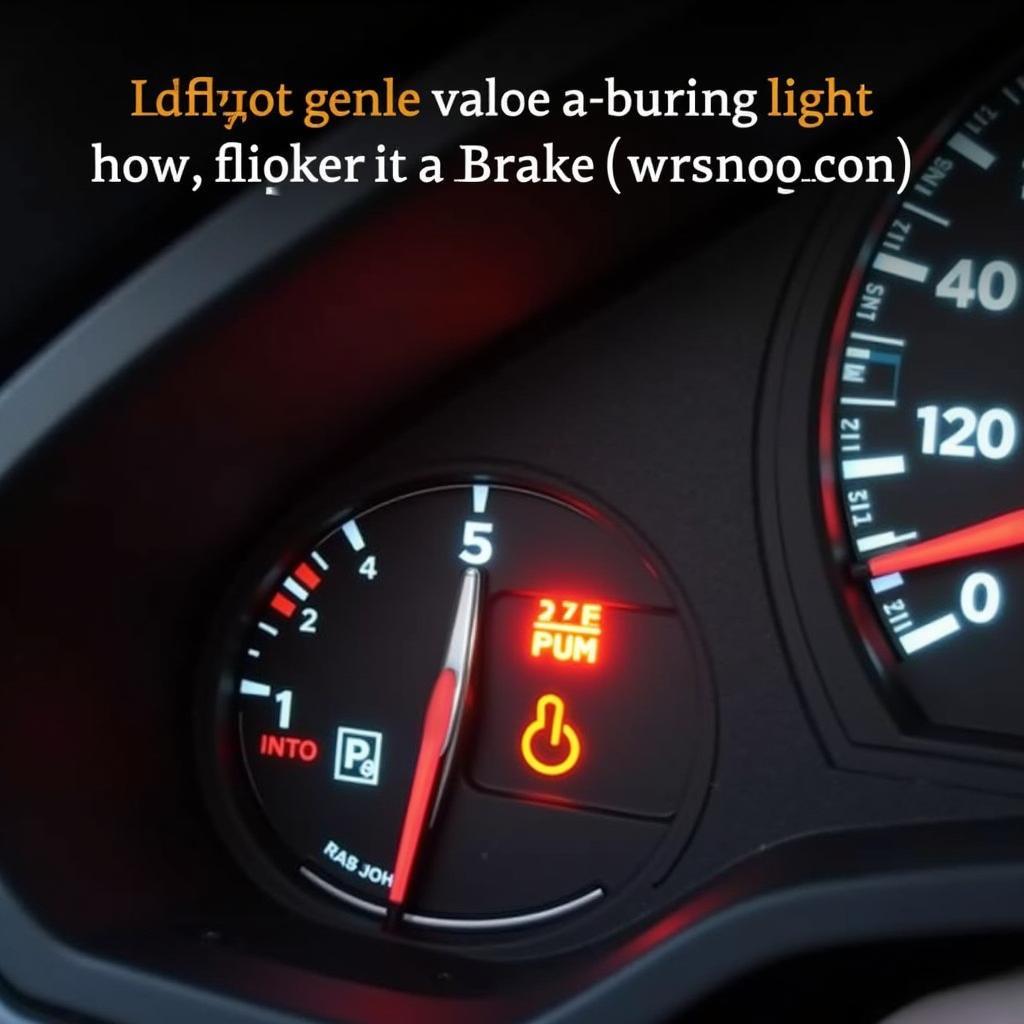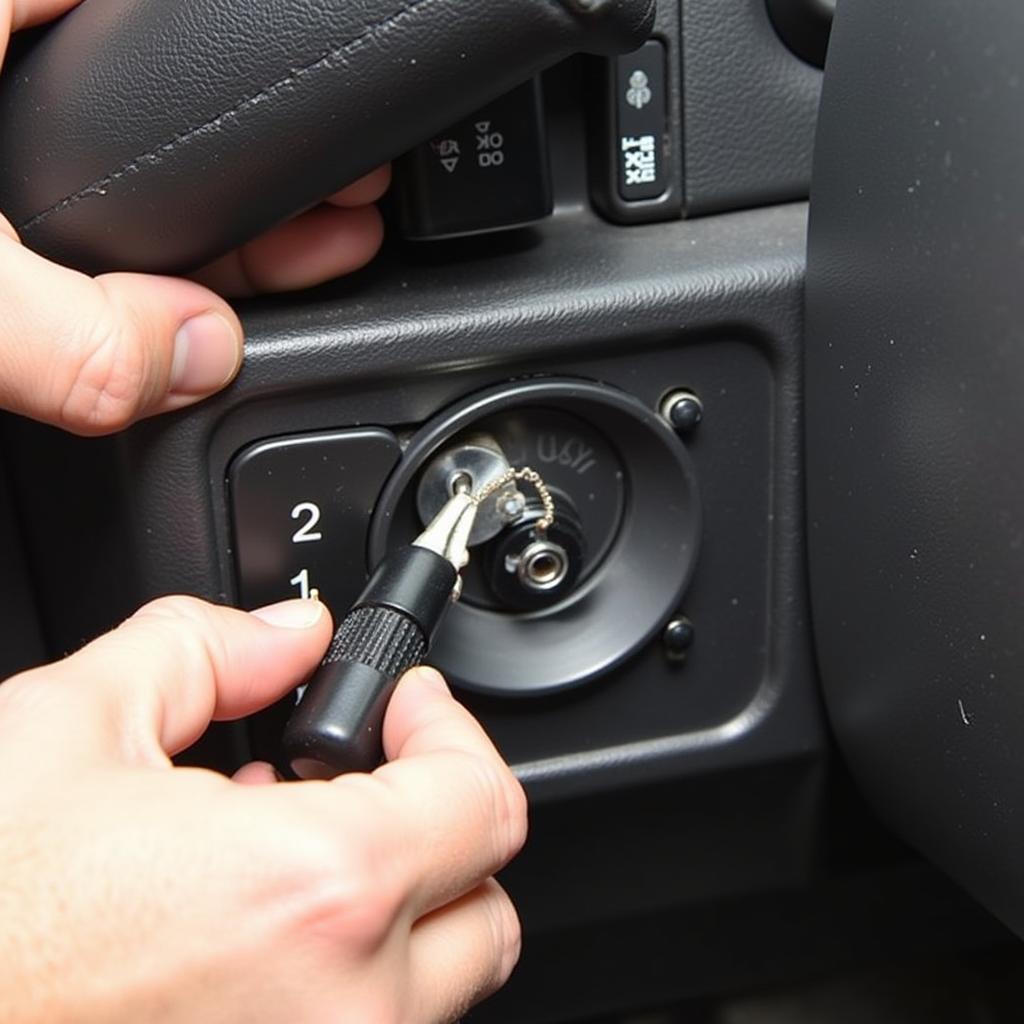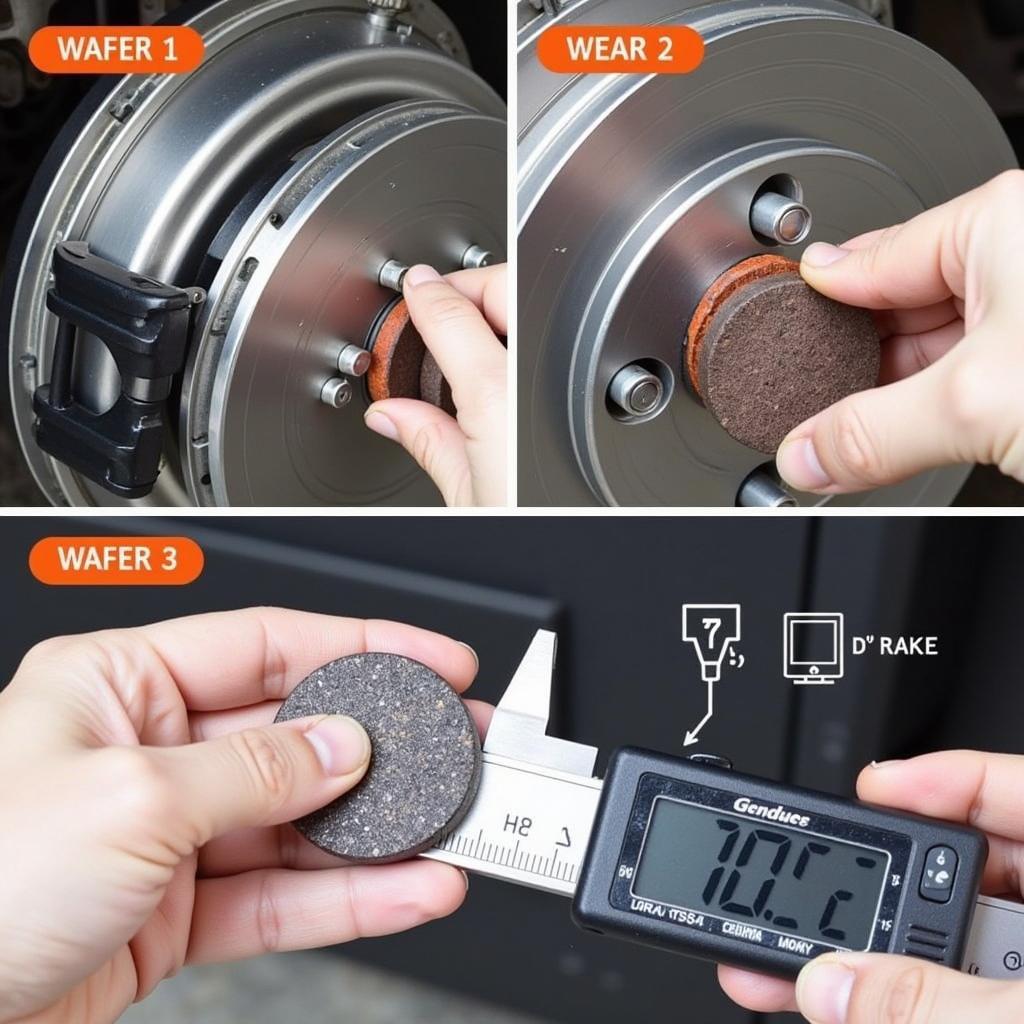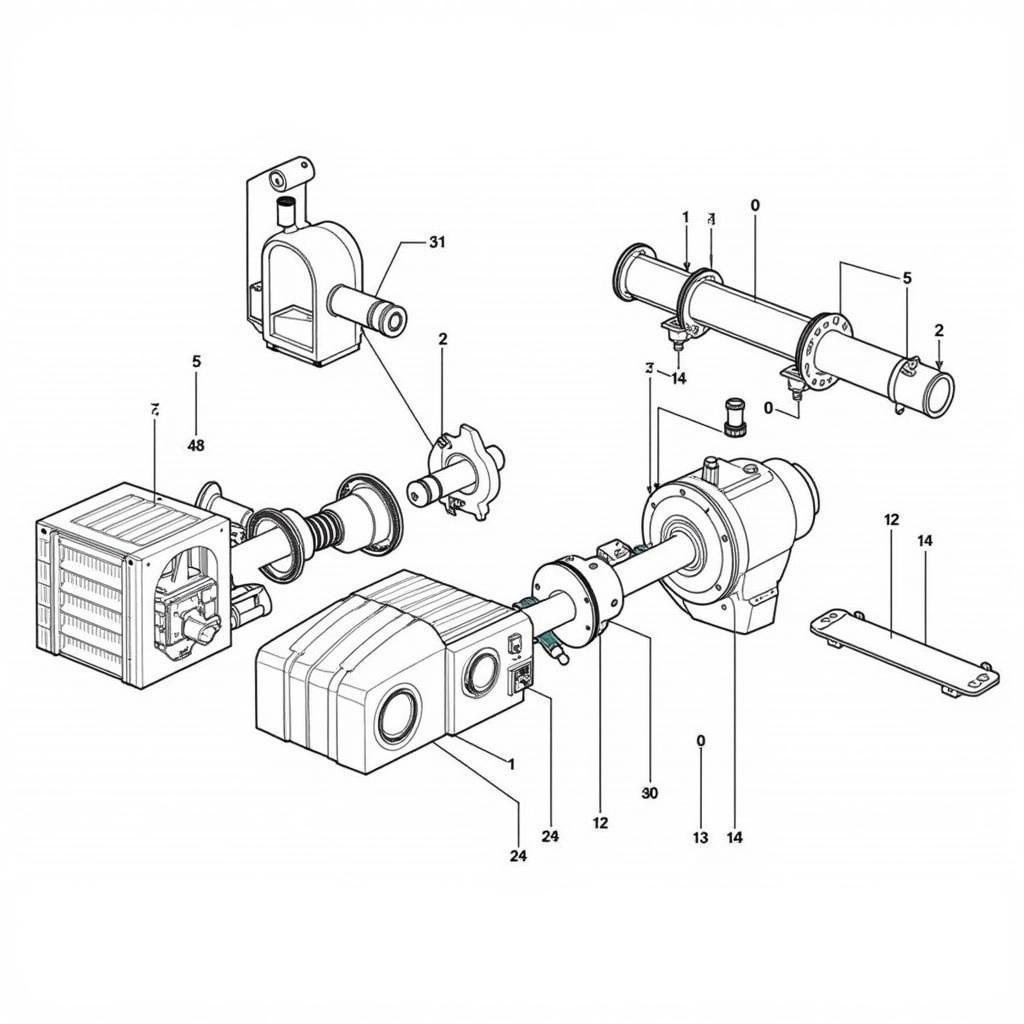A flickering brake warning light on your dashboard can be a disconcerting experience. It signals a potential problem with your vehicle’s braking system, demanding immediate attention. Ignoring this warning could lead to serious safety risks. Understanding the underlying causes and knowing how to troubleshoot this issue is crucial for every driver. This article provides a comprehensive guide to help you diagnose and address a flickering brake warning light.
If your brake warning light is flickering, it’s essential to address the issue promptly. This light could indicate anything from low brake fluid to serious issues with the braking system. More information on why your brake warning light is coming on and off can be found here.
Common Causes of a Flickering Brake Warning Light
Several factors can contribute to a flickering brake warning light. These include low brake fluid, a faulty brake light switch, worn brake pads, issues with the ABS system, or problems with the parking brake. Identifying the specific cause requires careful inspection and diagnosis.
Low Brake Fluid
Perhaps the most common culprit behind a flickering brake warning light is low brake fluid. Brake fluid is essential for transferring force from the brake pedal to the brake calipers, ultimately stopping the vehicle. Over time, brake fluid levels can decrease due to leaks or wear and tear.
Faulty Brake Light Switch
The brake light switch activates the brake lights when you press the brake pedal. A malfunctioning switch can lead to erratic behavior of the brake warning light, causing it to flicker.
Worn Brake Pads
Brake pads are designed to wear down over time. When they reach a certain level of wear, a sensor triggers the brake warning light. However, a faulty sensor or loose connection can also cause the light to flicker intermittently.
 Low Brake Fluid Level Causing Flickering Brake Light
Low Brake Fluid Level Causing Flickering Brake Light
ABS System Issues
The Anti-lock Braking System (ABS) prevents wheel lockup during hard braking. A problem within the ABS system, such as a faulty sensor or module, can also cause the brake warning light to flicker.
Parking Brake Issues
Sometimes, the issue might be as simple as a partially engaged parking brake. Make sure the parking brake is fully released. If the light persists, there could be a problem with the parking brake sensor or mechanism.
If you’re experiencing issues with your Ford E150’s flickering brake warning light, you might find this resource helpful: causes of flickering brake warning light ford e150.
Troubleshooting a Flickering Brake Warning Light
Diagnosing a flickering brake warning light requires a systematic approach. Start by checking the brake fluid level. If it’s low, top it off and observe if the light goes off. Next, inspect the brake light switch for any damage or loose connections. Check the brake pads for wear and tear. If you suspect an issue with the ABS or parking brake, it’s recommended to consult a qualified mechanic.
Why is my brake warning light flickering?
A flickering brake warning light often signifies a problem with your braking system, such as low brake fluid or a faulty sensor.
How do I fix a flickering brake warning light?
Fixing a flickering brake warning light depends on the underlying cause. Start by checking your brake fluid levels. If the problem persists, consult a qualified mechanic.
 Checking the Brake Light Switch
Checking the Brake Light Switch
How to Prevent a Flickering Brake Warning Light
Regular maintenance is key to preventing brake system problems. Schedule routine brake inspections, including checking brake fluid levels, brake pads, and other components. Addressing potential issues early on can prevent more serious problems down the road.
“Regular brake inspections are crucial,” says automotive expert, David Miller. “They can prevent small issues from escalating into major safety concerns and save you money in the long run.”
If you drive a 2013 Ford Fusion and are seeing a persistent parking brake warning light, you might find this link useful: 2013 ford fusion release parking brake warning light on.
Conclusion
A flickering brake warning light should never be ignored. It indicates a potential problem that could compromise your safety. By understanding the common causes and following the troubleshooting steps outlined in this article, you can effectively address the issue and ensure a safe driving experience. However, if you’re unsure about any aspect of the diagnosis or repair, consulting a qualified automotive technician is always recommended. Regular maintenance and prompt attention to warning signs are essential for maintaining a safe and reliable braking system. If you have observed that your brake warning light goes on and off, we encourage you to check out this relevant resource: my brake warning light goes on and off.
 Inspecting Brake Pads for Wear
Inspecting Brake Pads for Wear
FAQ
-
What does a solid brake warning light mean?
A solid brake warning light usually indicates a serious problem with the braking system, such as complete brake failure or a significant leak in the brake lines. -
Can a low battery cause a flickering brake warning light?
While uncommon, a severely low battery can sometimes cause erratic behavior in various electrical systems, including the brake warning light. -
How often should I check my brake fluid?
It’s recommended to check your brake fluid level at least once a month as part of your regular vehicle maintenance. -
Is it safe to drive with a flickering brake warning light?
While you might be able to drive a short distance, it’s highly recommended to address the issue immediately as it could signify a safety hazard. -
How much does it cost to fix a flickering brake warning light?
The cost varies depending on the underlying cause. A simple brake fluid top-up is inexpensive, while more complex repairs like replacing the ABS module can be significantly more costly. -
Can I fix a flickering brake warning light myself?
Simple fixes like topping off brake fluid can be done DIY. However, for more complex issues, it’s best to seek professional help. -
What are the signs of worn brake pads?
Signs of worn brake pads include squealing or grinding noises when braking, a spongy brake pedal, and reduced braking performance. For information on motorcycle brake lights, you might find this article interesting: motorcycle motorbike warning flash strobe brake lights led white.
“Addressing brake issues promptly can significantly extend the life of your braking system and prevent costly repairs down the line,” advises Sarah Chen, a certified automotive technician.


